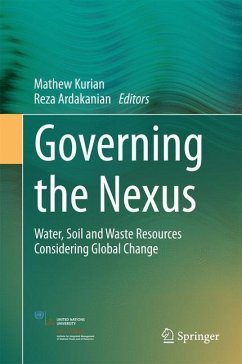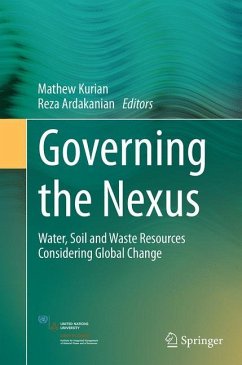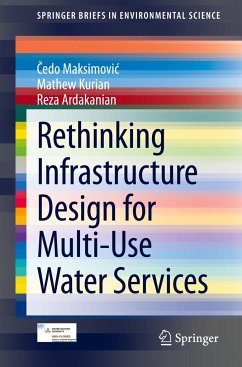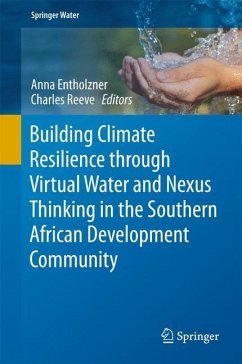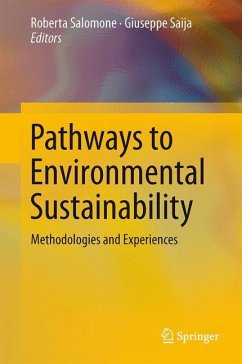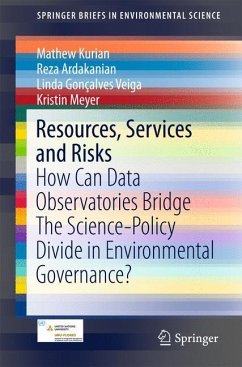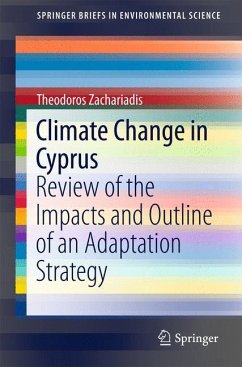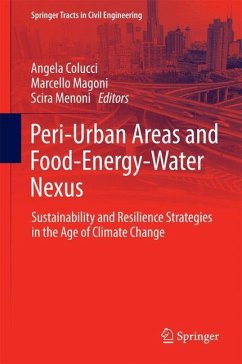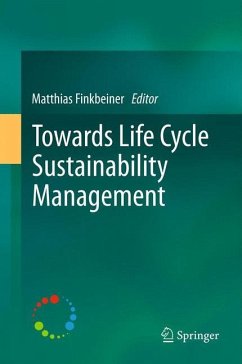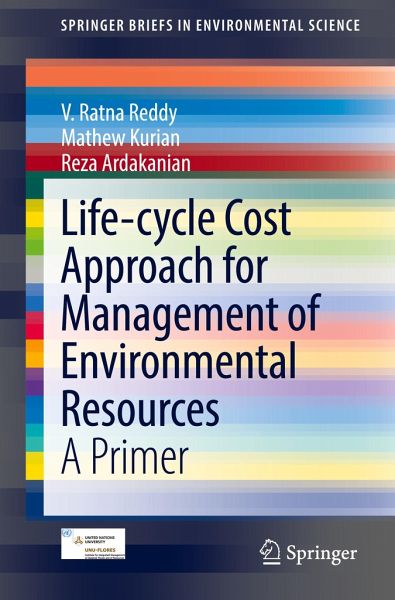
Life-cycle Cost Approach for Management of Environmental Resources
A Primer

PAYBACK Punkte
19 °P sammeln!
This book demonstrates the application of Life-cycle Cost Approach (LCCA) in the management of infrastructure and other investment projects in the context of developing countries. The main goal is to identify potential opportunities for the adoption LCCA in developing countries, with the help of case studies and best practices. The editors observe that developing countries are plagued with poor and fluctuating service delivery which affords low or no priority for environmental protection. They seek to instill at the policy-making level an understanding of why life-cycle cost assessment is cent...
This book demonstrates the application of Life-cycle Cost Approach (LCCA) in the management of infrastructure and other investment projects in the context of developing countries. The main goal is to identify potential opportunities for the adoption LCCA in developing countries, with the help of case studies and best practices. The editors observe that developing countries are plagued with poor and fluctuating service delivery which affords low or no priority for environmental protection. They seek to instill at the policy-making level an understanding of why life-cycle cost assessment is central to achieving the goals of sustainable development as well as sustainable service delivery and to influence the behavior of sector stakeholders.
The editors examine the evolution of LCCA from a project appraisal tool to a more comprehensive method of incorporating sustainable development aspects in a variety of sectors. By providing a compendium of concepts, tools and practicalexperiences, it seeks to broaden the application of LCCA, which is often limited to specific phases of the life-cycle with little or no weight given to environmental aspects.
The aim of the book is to mainstream LCCA into governance processes at institutional levels from local to national, in order to increase the ability and willingness of decision makers - both users and those involved in service planning, budgeting and delivery - to reach better informed and more relevant choices among different types and levels of products and services.
The editors examine the evolution of LCCA from a project appraisal tool to a more comprehensive method of incorporating sustainable development aspects in a variety of sectors. By providing a compendium of concepts, tools and practicalexperiences, it seeks to broaden the application of LCCA, which is often limited to specific phases of the life-cycle with little or no weight given to environmental aspects.
The aim of the book is to mainstream LCCA into governance processes at institutional levels from local to national, in order to increase the ability and willingness of decision makers - both users and those involved in service planning, budgeting and delivery - to reach better informed and more relevant choices among different types and levels of products and services.





